- Home
- Faculty, Department, Graduate School
- Faculty of Data Science
- Department of Data Science
Faculty of Data Science
Department of Data Science
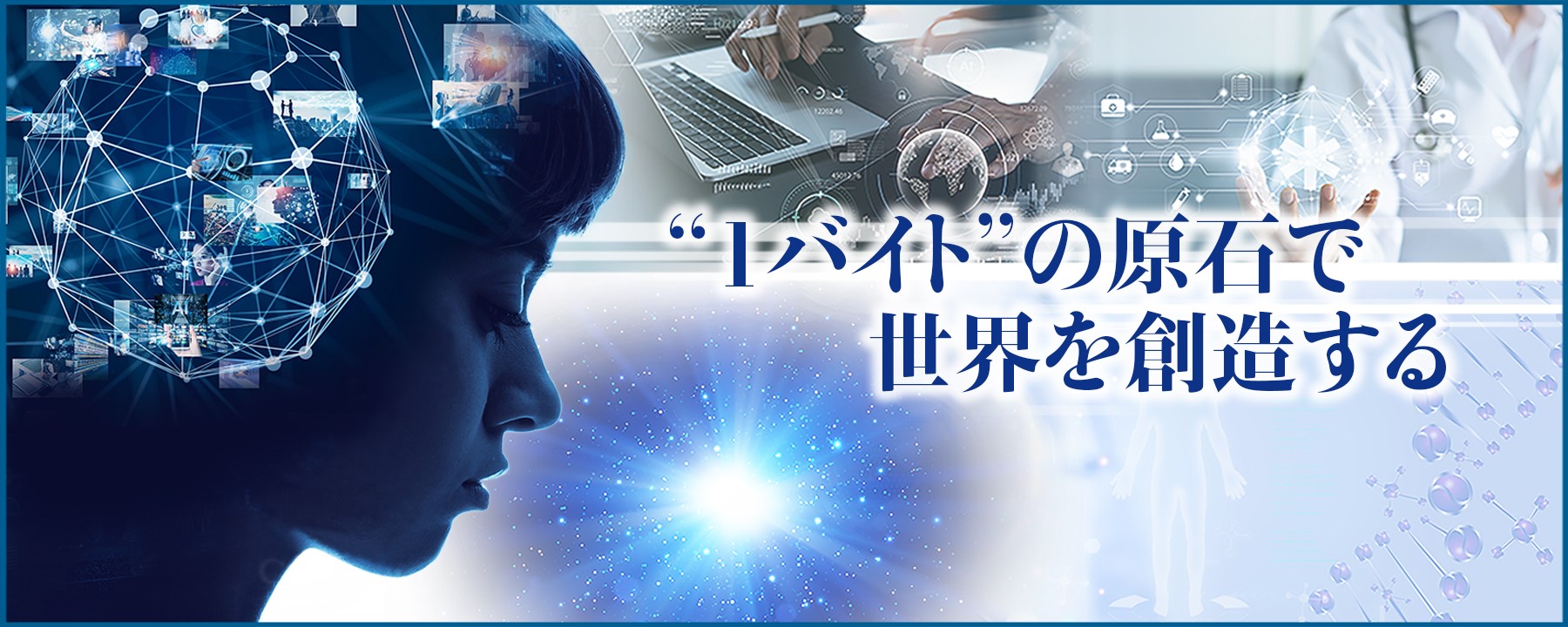
What is Data Science?
It is now common sense to analyze data and make new strategies at all times, both in Japan and overseas, and in a wide range of fields such as business, healthcare and welfare, and administration.
To do so, we must cultivate the power of "finding issues," "collecting information," "analysing," and "finding new knowledge."
Data science is not only an "information science" with a systematic theory, but also a "physics" that is indispensable to business.
The so-called "data scientists", who have acquired data science that solves problems through statistical thinking based on data, are expected to play an active role in all fields around the world in the future.

Feature 1
- We analyze customer information, purchase history, website browsing history, etc., and propose "products that are likely to be purchased" to users on the site.
- When logistics companies deliver products to various locations, they analyze the volume, location, time, number of trucks, weather, traffic information, etc., and formulate delivery plans that optimize costs and time.
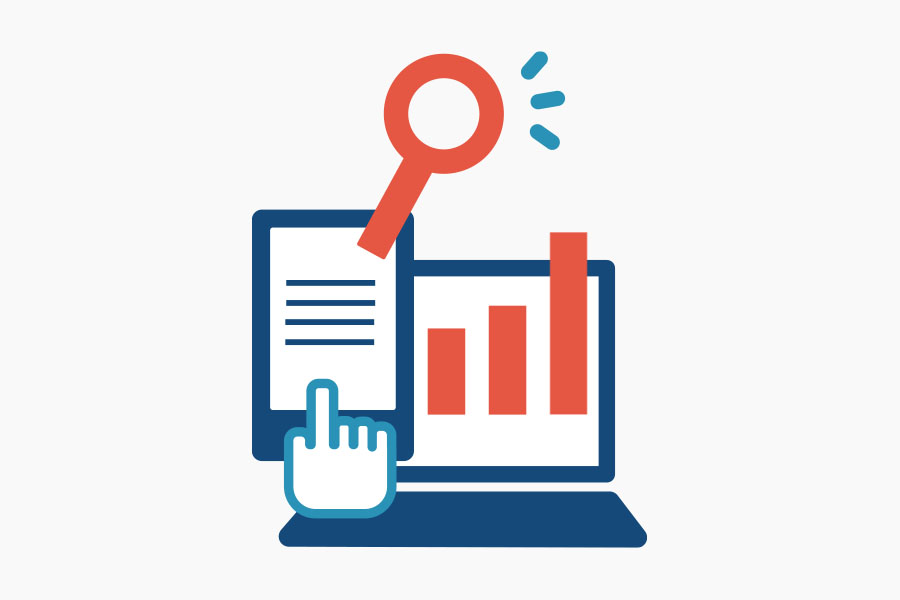
Feature 2
- By analyzing the vast amount of medical data accumulated in hospitals, the burden on doctors and nurses is reduced as much as possible, and is useful for early detection, prevention, and treatment of diseases.
- By analyzing medical big data, we find genes that cause diseases and substances that are the source of new drugs, and contribute to the creation of new drugs.
Humanities to be fostered and Diploma Policy Graduation Accreditation and Diploma Policy
Shimonoseki City University Faculty of Data Science develops human resources who can contribute to solving social and organizational issues and creating new value by mastering theories and practices related to mathematical statistics, informatics, and social sciences necessary to design, analyze and utilize diverse data.
- A.
- Through knowledge of statistics and related mathematical sciences, and experience of analysis utilizing them, students acquire the ability to collect, organize, and analyze data, and logically consider the knowledge obtained from them.
- B.
- Through his knowledge of algorithms such as information management and analysis, artificial intelligence, and his experience of expressing them on a computer, he acquires the ability to analyze and utilize various forms of data and handle them appropriately.
- C.
- By learning how data analysis is performed in the fields of business or healthcare, along with the unique knowledge of each field, students understand the role that data can play in society and acquire the ethics and sense of responsibility (morals) necessary for handling data.
- D.
- It is possible to communicate appropriately with various people, and to communicate the analytical methods used and statistical interpretation of the results in an easy-to-understand manner.

Policy for organizing and implementing curriculum Curriculum policy
Faculty of Data Science organizes and implements curriculum based on the following policies so that students can acquire the knowledge and skills set forth in the Diploma Policy.
- A.
- In the first and second years, students acquire basic knowledge of mathematics related to data science, and in the second and third years, students acquire lecture and exercise courses to acquire a wide range of knowledge and skills related to statistical analysis methods.
- B.
- In the first and second years, students acquire basic knowledge about information and programming, and in the second and third years, students acquire a wide range of knowledge about algorithms, including artificial intelligence, and acquire skills in data analysis and utilization.
- C.
- In the second to third years, students will learn the analysis of data in the field of business or healthcare. At the same time, students will acquire ethics and a sense of responsibility as a data engineer through lectures and active learning courses.
- D.
- Throughout the first to fourth years, students acquire exercises, project-based learning, and graduation research in order to acquire communication skills, presentation skills, and creative thinking skills.
- E.
- In order to ensure objectivity and strictness, the degree of achievement of each course subject described in the syllabus will be evaluated in a multifaceted and comprehensive manner using grade evaluation methods and criteria (regular examinations, reports, etc.).
Specialized Education Curriculum
| 1 year | 2 years | 3 years | 4 years | ||
|---|---|---|---|---|---|
| Specialty Gate Basis Foundation |
Mathematics and Information | Basic Mathematics Information Society and Information Ethics Linear algebraics Overview of Informatics Introduction to DS Programming Probability theory |
Analysis Database Geometry Mathematical Statistics Network Technology Theory Algorithm theory |
||
| Introduction to DS/Basics | Introduction to Data Science Introductory Data Science Exercise |
Basic Data Science Data Science Exercise Information and occupation |
|||
| Utilization of data analysis | Quantitative data analysis Regression analysis Categorycal Data Analysis Table Data Mathematical Analysis Data handling Overview of Artificial Intelligence Time series analysis Bayes Statistics |
Quantitative Data Analysis Exercise Statistical modeling Categorycal Data Analysis Exercise Table Data Mathematical Analysis Exercise Data mining Machine learning Digital signal processing technology Statistical Social Survey Act Text mining Pattern recognition Social Network Analysis Exercise of statistical social research law Data Analysis Exercise |
|||
| Exercise and Graduation Research | Koroquiam I | Research Ethics | DS project Coroquiam II |
Graduation Research | |
| Specialty Gate O For use |
Business Data Science |
Overview of Management Information Theory of Information Systems Management Information Systems |
Operations Research Marketing research E-Commerce Theory Mathematical optimization Business Data Analysis |
||
| Health data Science |
Overview of Epidemiology and Public Health Overview of Health and Medical Science |
Overview of Genetics Overview of Pharmacology Sensitivity Data Processing Medical and Health Informatics Bioinformatics Overview of Clinical Research Biostatistics |
|||
※The curriculum is subject to change.
Introduction of class subjects
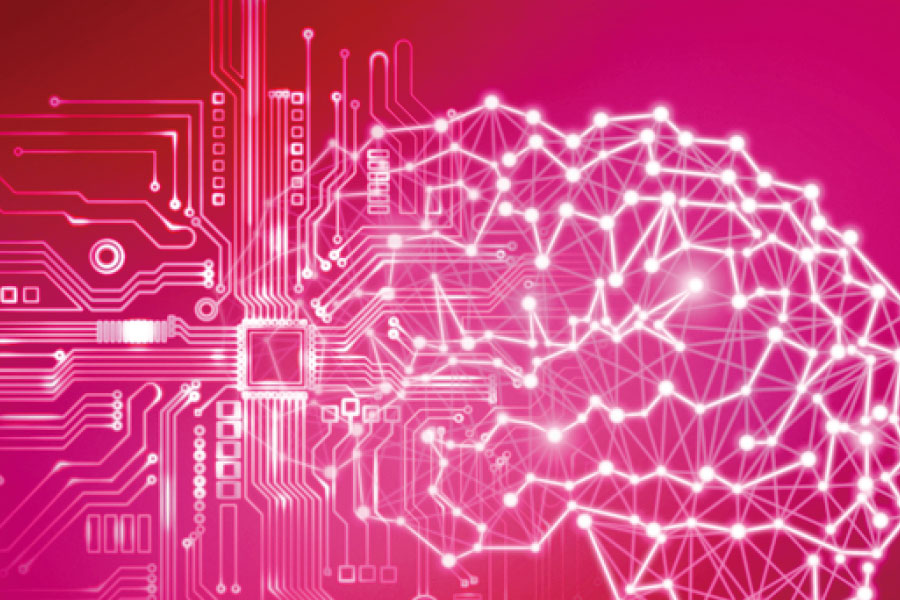
Overview of Artificial Intelligence
Artificial intelligence is an essential basic technology that supports the foundation of life. The technology and services are rapidly spreading in various aspects of life and work, such as economy, medicine, education, politics, arts, sports, and games. In order to understand the technology currently called artificial intelligence, we will systematically learn basic technologies and specific applications, and also conduct programming exercises as an issue.

DS project
In the DS project, we will discuss, analyze, and present in a small group of groups across all fields of statistics, informatics, business data science, and health data science. In the form of Project-based learning (PBL, problem-solving learning), while handling real data, you will find issues yourself and learn how to solve them independently.

Theory of Information Systems
In recent years, there have been many cyberattacks that sneak in information systems, steal or destroy data, and the importance of cybersecurity, a defense measure, has become increasingly important. In this curriculum, learners themselves build information systems and conduct exercises to attack the vulnerabilities. We will learn the cybersecurity knowledge that everyone needs more practically.

Marketing research
<Business field>
Marketing research is an analysis to solve problems related to management strategies and marketing activities. Taking actual products and services as examples, students acquire skills that can be used in practice through group work.
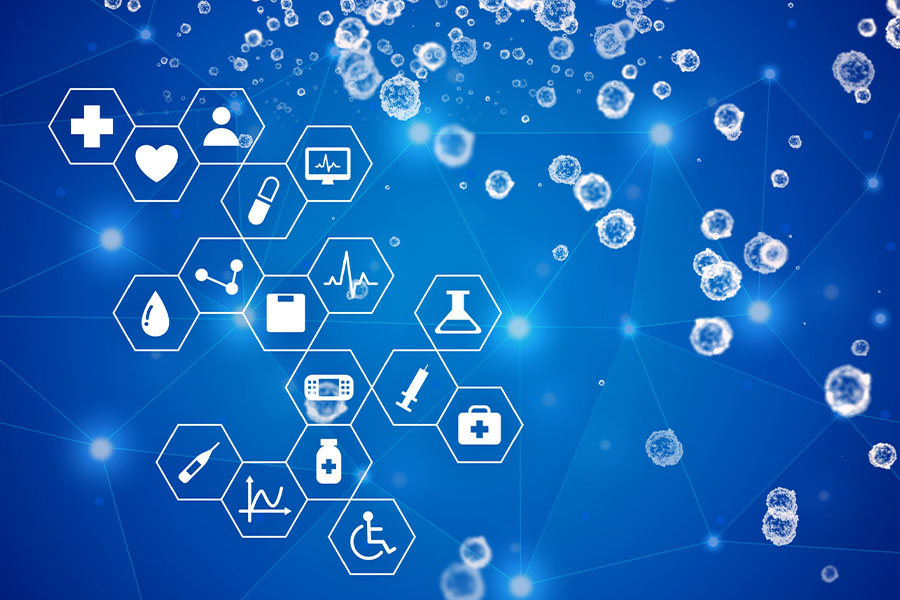
Biostatistics
<Health field>
In biostatistics, students acquire statistical, data science, and consulting matters that are useful for medical research such as cancer research. We also carry out tasks on a small group basis and acquire the overall know-how of data analysis in medical research.
Practically learn cybersecurity knowledge, which has become increasingly important in recent years.
Since data held by a company is an important asset of a company and often contains important information received from customers, it is usually properly managed by an information system that manages information, that is, an information system.
The expected course
After graduation, you will use your data science expertise to engage in healthcare-related tasks in a wide range of industries, as planning, marketing, system engineers, or at public institutions and medical institutions.
● Manufacturing, retail, advertising, and publishing ● IT and telecommunications ● Administration ● Health and medical institutions (including university hospitals) ● Pharmaceutical companies ● Research Institute think tank ● Financial institutions (banks, insurance, securities, etc.) ● Graduate school, etc.
Licenses and qualifications that can be obtained
The following licenses and qualifications can be obtained by acquiring the prescribed credits (selection system).
● Junior high school teacher type license (math)
● High school teacher type license (math)
● High school teacher type license (information)
● Social Investigators
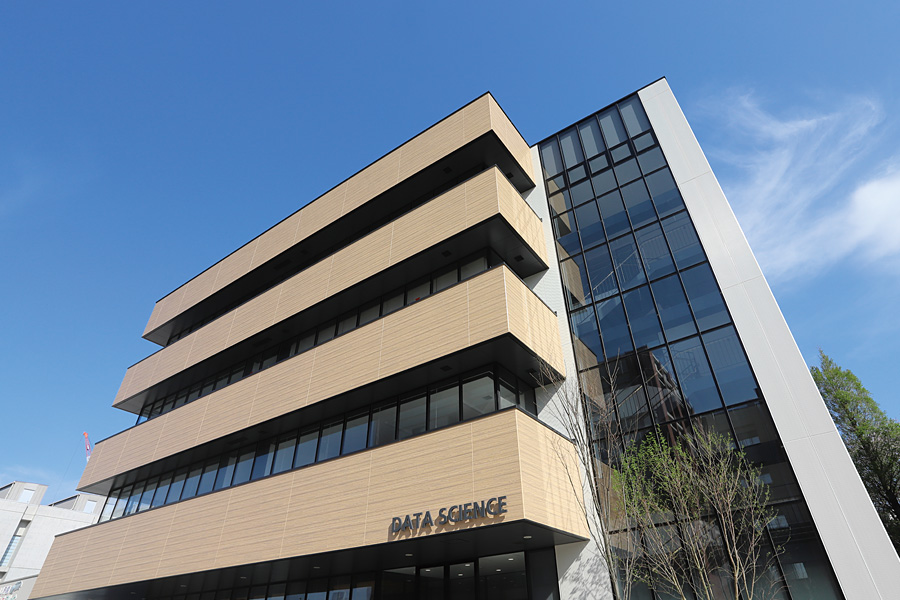

Lecture Block D
On the first floor, there is a classroom where lectures and exercises can be taken by a large number of people and a rest space for students, and on the second to fourth floors, student laboratories and teacher laboratories are located. We have realized a close distance between students and faculty, where you can consult immediately if you have any questions.
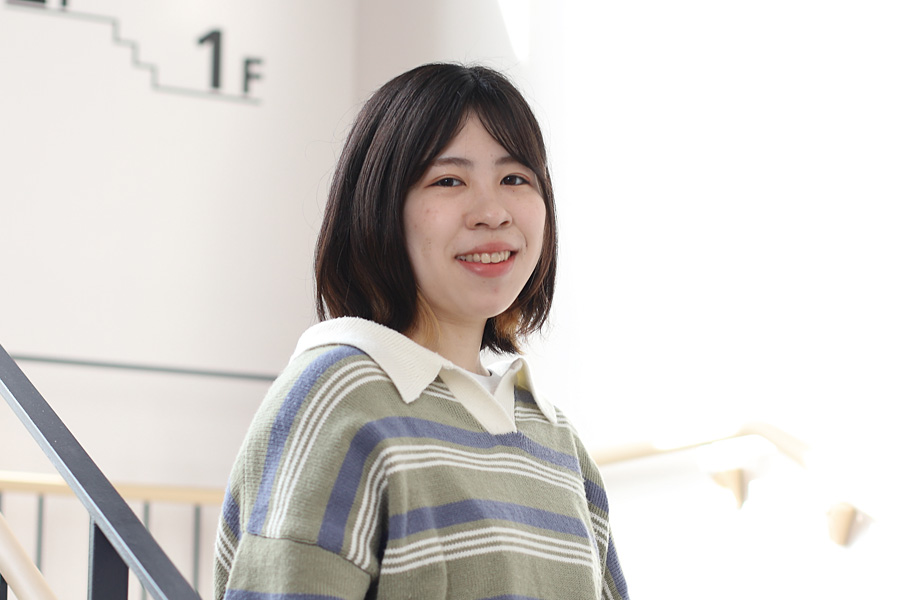
Current students VOICE
To a data scientist who contributes to society.
Department of Data Science 1st year (as of April 1, 2024)
Princess Ai Kono (from Yamaguchi Prefectural Asa High School)
I heard about ESG-conscious corporate management and data science in high school "inquiry activities" and became interested in this subject because I was interested. I am looking forward to future classes to absorb a lot of things because I can learn specialized fields of interest from "Business Data Science" and "Health Data Science". There are a lot of space in the university where you can concentrate on studying, so I would like to actively use it and try to acquire qualifications. In the future, I would like to contribute to the realization of a sustainable society by utilizing data to solve social issues and by acquiring the ability to create new value.
Q&As
- Q
I was a liberal arts student in high school, can I learn data science?
- A
Data scientists can aim regardless of humanities or sciences. In the first place, data science is a discipline that analyzes data and creates new value while utilizing theories such as mathematics, statistics, machine learning, and programming. To do so, it is necessary to understand society, economy, and human beings, and a humanistic sense is useful.
- Q
I'm not very good at mathematics. Can I keep up with the class?
- A
You need a minimum level of math knowledge, but you don't necessarily need advanced math knowledge. After enrollment, you will learn the basics of mathematics related to data science as a "specialized basic subject". We are also preparing a system for remedial learning.
- Q
What kind of fields can you play an active role after graduation?
- A
Human resources capable of utilizing massively accumulated big data will be required in a wide range of fields, both public and private sectors. In particular, at the university, students are expected to learn practically in the two pillars of "Business Data Science" and "Health Data Science", and be active as planning, marketing analyst, SE, etc.
Teacher introduction
"Data science" with a view to the future, which is deeply and widely learned from specialists.







